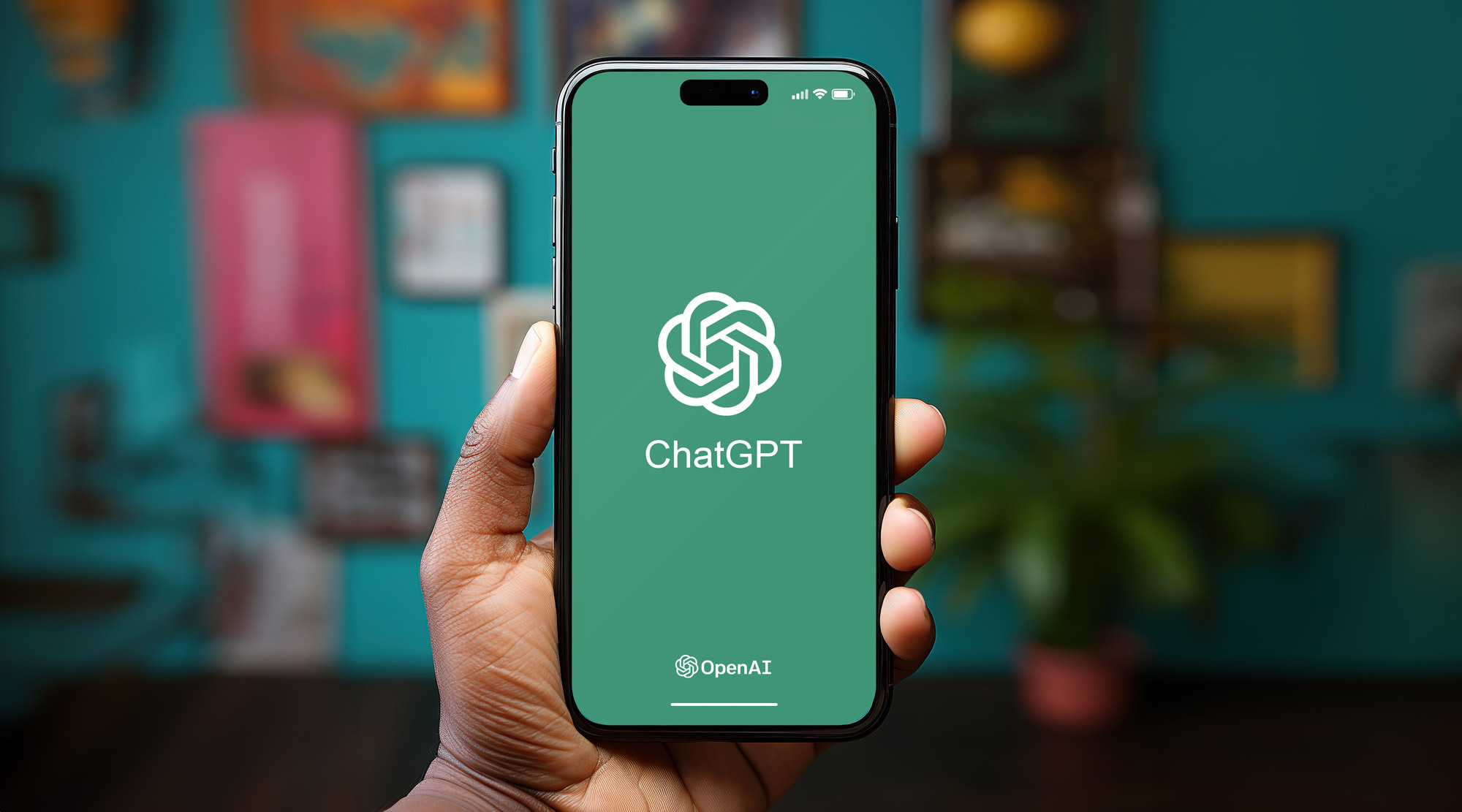Zelda: Tears of the Kingdom finally made me ditch Joy Cons
It's time to explore Hyrule with an Xbox controller instead
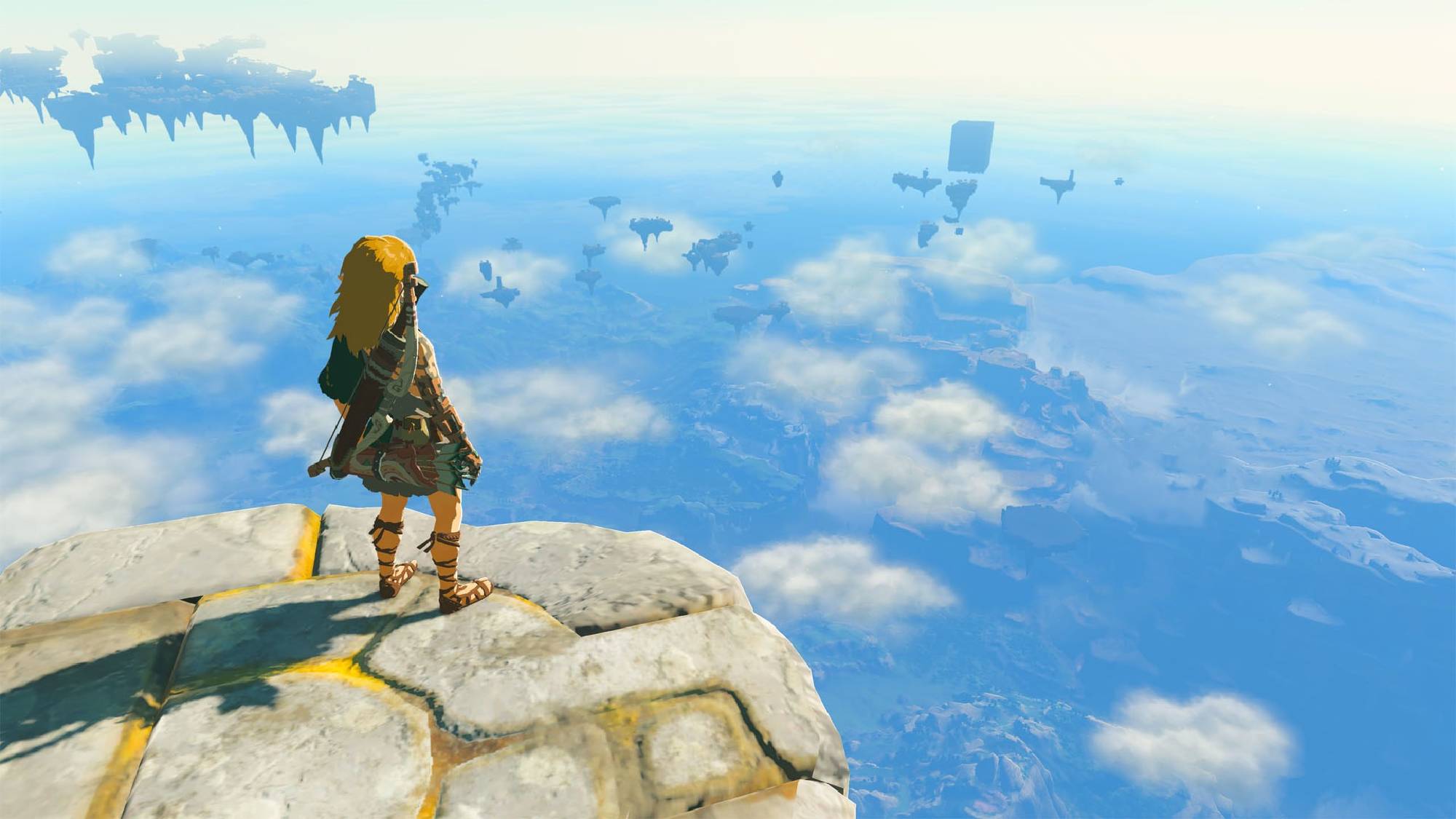
When it comes to the Nintendo Switch, I’m very much in favor of spending the majority of my time in handheld mode. I’m not entirely sure why, but that’s just the way I like to play. But some games warrant the big screen experience, like Breath of the Wild, which I exclusively played on my TV. The sequel, The Legend of Zelda: Tears of the Kingdom, is no exception.
But loading up post-apocalyptic Hyrule for another adventure and something felt… off. Turns out it was the analog sticks on the Joy-Cons, with Link responding rather erratically in response to commands. Not enough that it affected the game's action, but it was annoying enough to make me want to ditch the controllers for TV playthroughs.
The problem is, what controller do I get? Wireless Switch controllers are expensive, especially the Switch Pro, and opting for a wired model is just asking for my dog to send my console crashing off the TV stand. So what’s a gamer to do? I went ahead and bought a $20 adapter that let me use an Xbox controller.
Making use of spare controllers
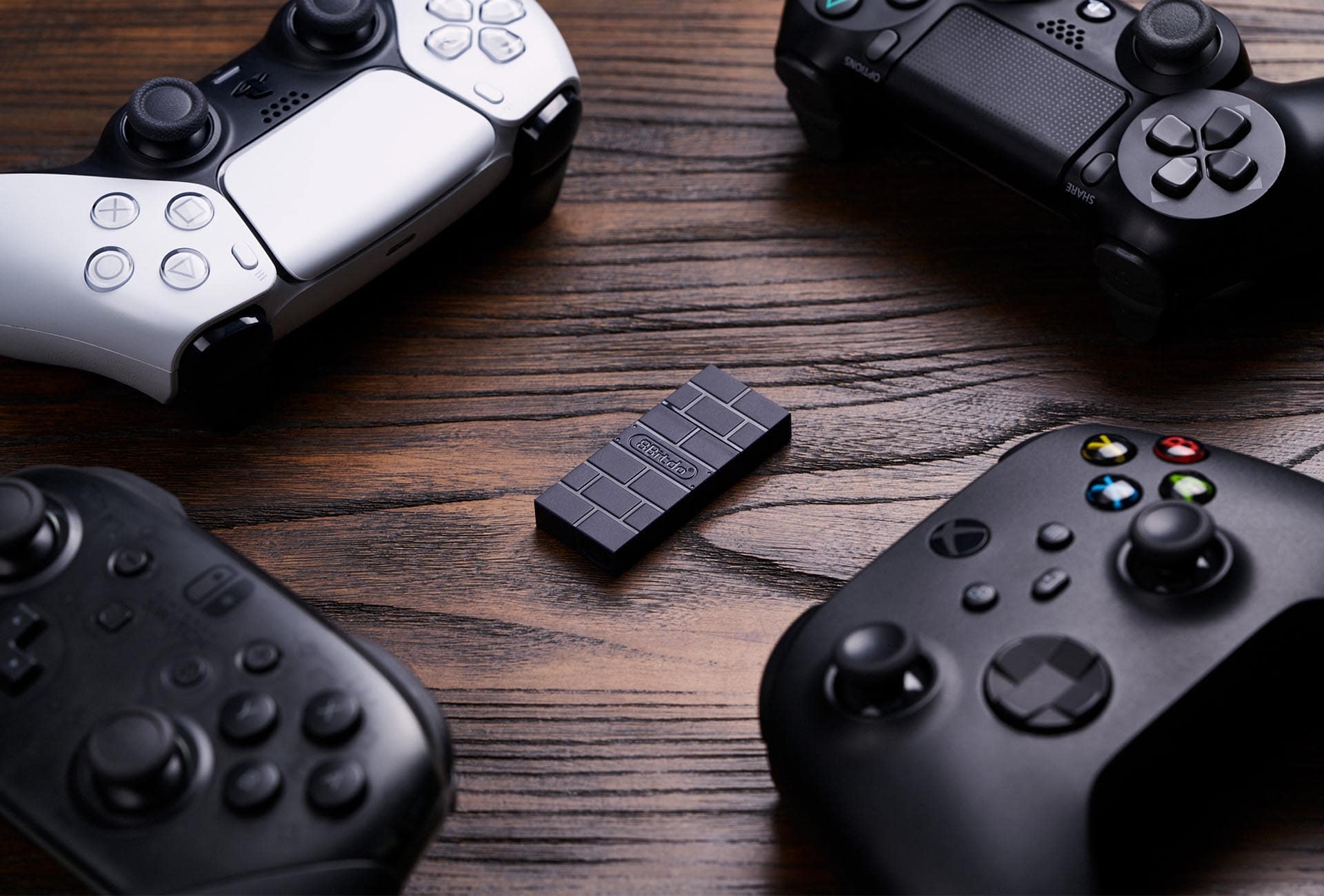
I’ve been playing games most of my life, and now that I’m in my 30s I’ve accumulated quite a collection of controllers. I’m not a particularly big controller aficionado, so I’ve no real desire to add to that collection unless I absolutely have to.
Especially if it involves spending up to $70 on a Switch controller that probably won’t be getting used all that much. I’ve never had an issue using Joy-Cons in handheld mode, and am not likely to stop using my Switch like an oversized Game Boy.
Thankfully, 8Bitdo’s USB Wireless Adapter 2 was able to come to my rescue. The adapter is around the same size as a large USB stick with a brickish motif. It will plug into your Switch, either via the dock or directly with a USB-C adapter, letting you use almost any controller imaginable. As I found, it even works with third-party docks, just as long as there’s space for the adapter’s width.
Compatible controllers include those from the PS4, PS5, Wii, Wii U, and recent Xbox consoles. Just as long as there’s Bluetooth connectivity, it should connect to the 8bitdo adapter. That means older Xbox One and Xbox 360 controllers absolutely will not work.
Thankfully I happened to have a compatible Xbox controller lying around. It came with an Xbox One S, but since that console became a glorified 4K Blu-ray player the controller never got much use. It saw some action for remote play for a time, only to be made redundant by the Razer Kishi — which is far sleeker and easier to set up.
Now this controller is gaining a second chance at life as a substitute for my Joy-Cons.
8bitdo’s connection capabilities almost feel like magic
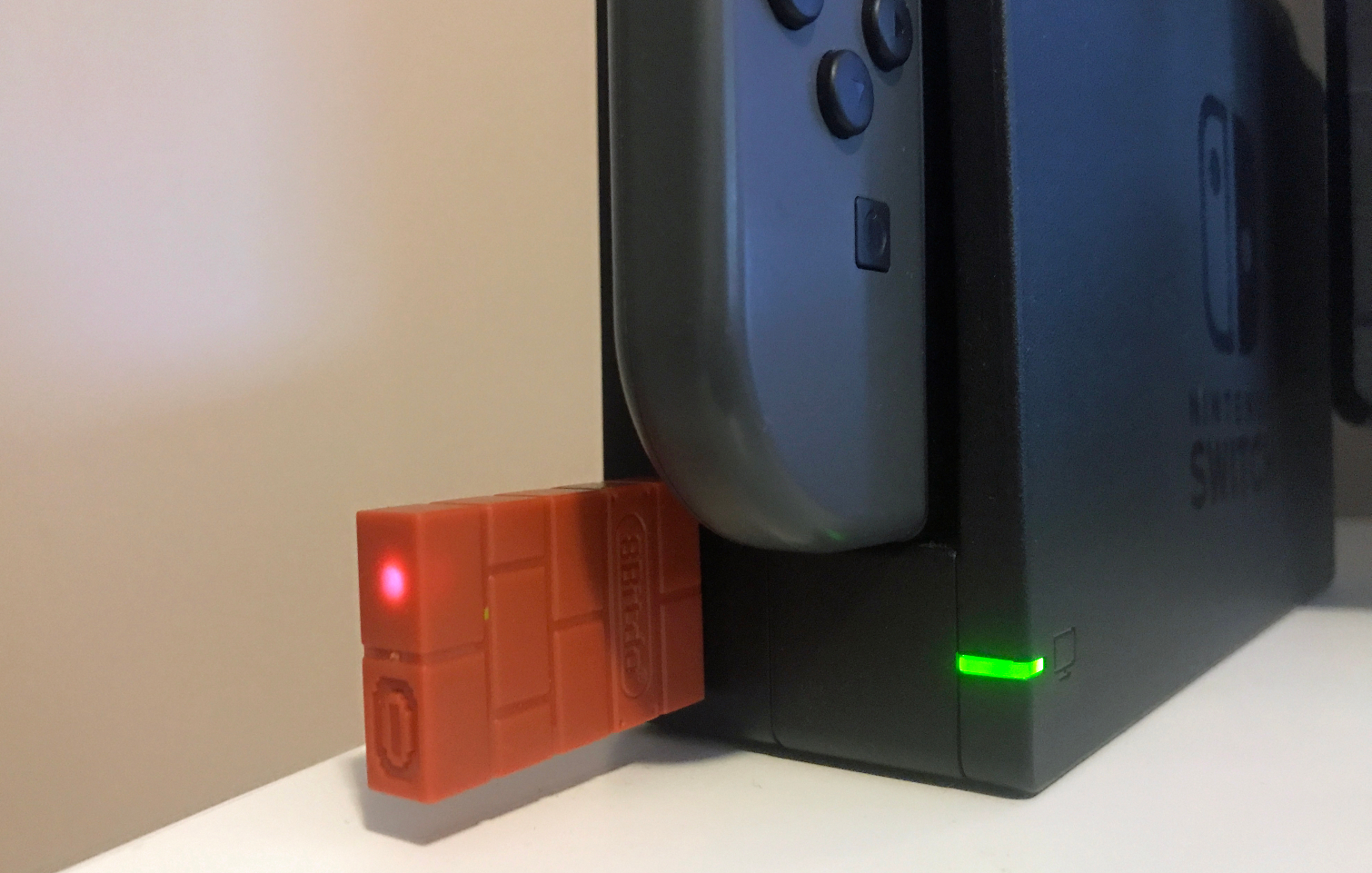
The 8bitdo adapter is really quite simple. Plug it in, press the pairing button on the bottom of the stick, and go through the standard motions of pairing the controller of your choice. In the case of an Xbox controller that means pressing the pairing button on the top of the controller.
The setup did have a few hiccups, though that’s not the fault of the 8bitdo adapter. My first hurdle was trying to connect an original Xbox One controller, which lacks Bluetooth and obviously didn’t work. Then, once I did get a controller connected, I was only able to navigate the menus and couldn’t play the game.
Turns out my Switch was still connected to my Joy-Cons, which I’d been using to tinker with the settings. As soon as they were out of the picture the Xbox controller started working perfectly.
I did try to connect my PS5’s DualSense controller to the 8bitdo as well, but with little success. According to an Amazon review I read it’s because the adapter’s firmware needed updating first. I never bothered with that for a few reasons, the first being that I only have one DualSense controller and didn’t feel like having to reconnect it to my PS5 again. The other being that the Xbox controller already worked, and was far easier to set up thanks to that dedicated pairing button.
But the beauty of modern controller design is that all controllers have roughly the same button layout. Even with variations, like the Xbox logo button or the Switch’s Plus and Minus menus, the software adapts pretty much immediately. And it is magnificent.
Using an Xbox controller on Switch solved problems I didn’t even know I had
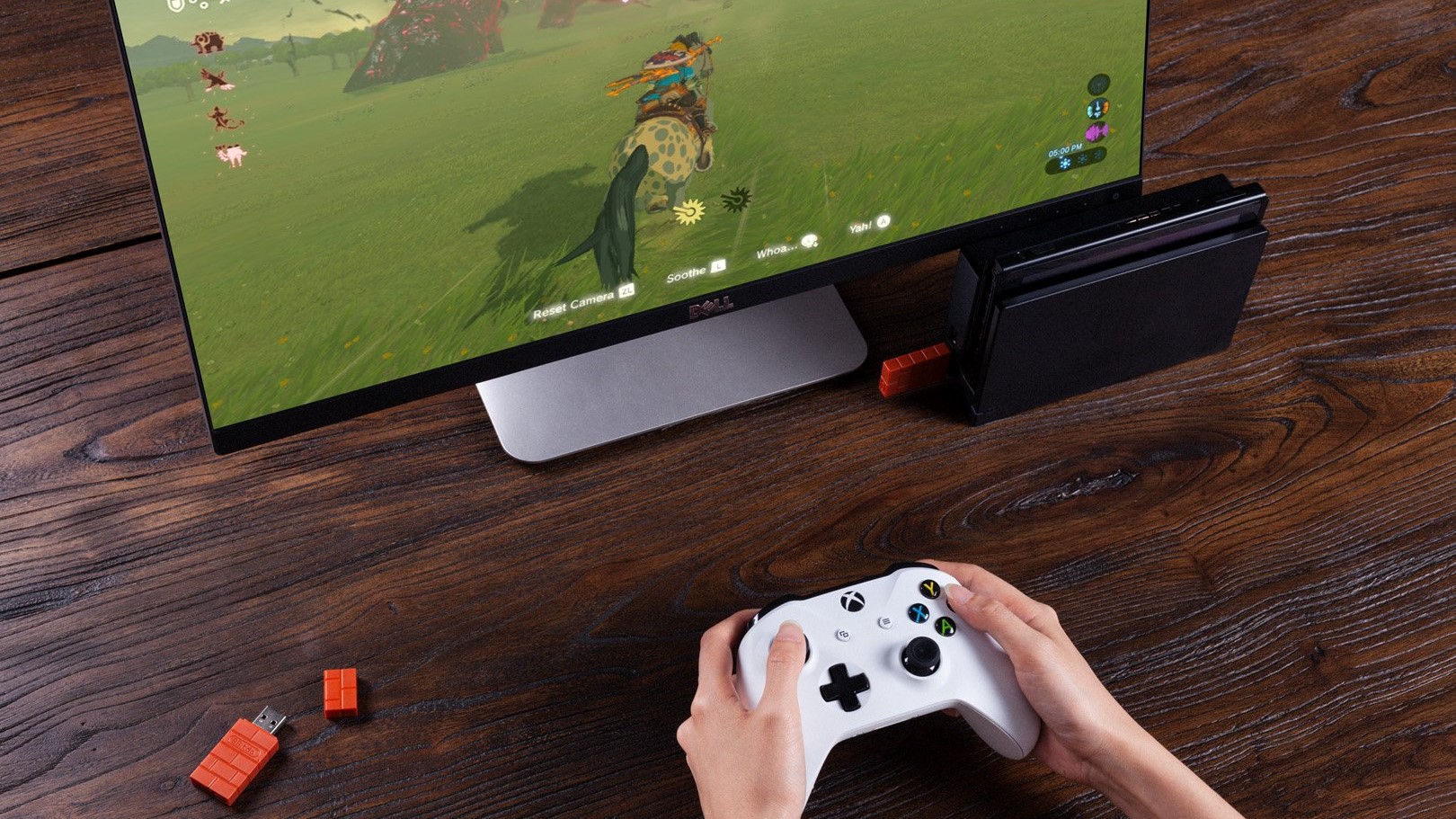
Playing Tears of the Kingdom with Joy-Cons felt rather jagged, with Link seemingly running all over the place. Playing with an Xbox controller was… exactly the same. It’s still quite tricky to get Link to run around smoothly, and I ended up having the exact same problem playing Hyrule Warriors: Age of Calamity.
That suggests there is a totally different cause than controller hardware. But I’m not mad about that. The simple fact is that using an Xbox controller with my Switch was a much more pleasant experience; certainly in terms of my own personal comfort.
The Joy-Cons have a bunch of positive attributes, but ergonomics is definitely not one of them. Even sliding the half-controllers into a grip isn’t nearly as comfortable as a dedicated full-size controller. The fact the Xbox controller hasn’t undergone a major redesign since 2005, certainly not in the grip area, just goes to show how great a job Microsoft did in comparison.
The other thing to consider is how awkward Joy-Cons are to recharge. Your options are to connect to the Switch itself, which isn’t ideal if you’re in TV mode, or invest in some sort of charging accessory that Nintendo will sell to you for a price. Either buy an official Joy-Con charging grip, or a set of bulky Joy-Con battery packs — which are powered by AA batteries of all things.
Both those options will set you back $35 And they’re not great, frankly, certainly not compared to a standalone controller. PlayStation, Xbox, or whatever brand you pick, typically you can keep that controller going by plugging it into a charger. No need to connect it to the console, simply plug it into a wall socket and you’re good to go. A situation I like to call Schrodinger’s controller — since it’s simultaneously wired and wireless gaming.
Though this whole experience has highlighted how daft button design is. Controllers have had ABXY buttons for so long, why do they have to be different on every single console? It makes absolutely no sense.
Bottom line
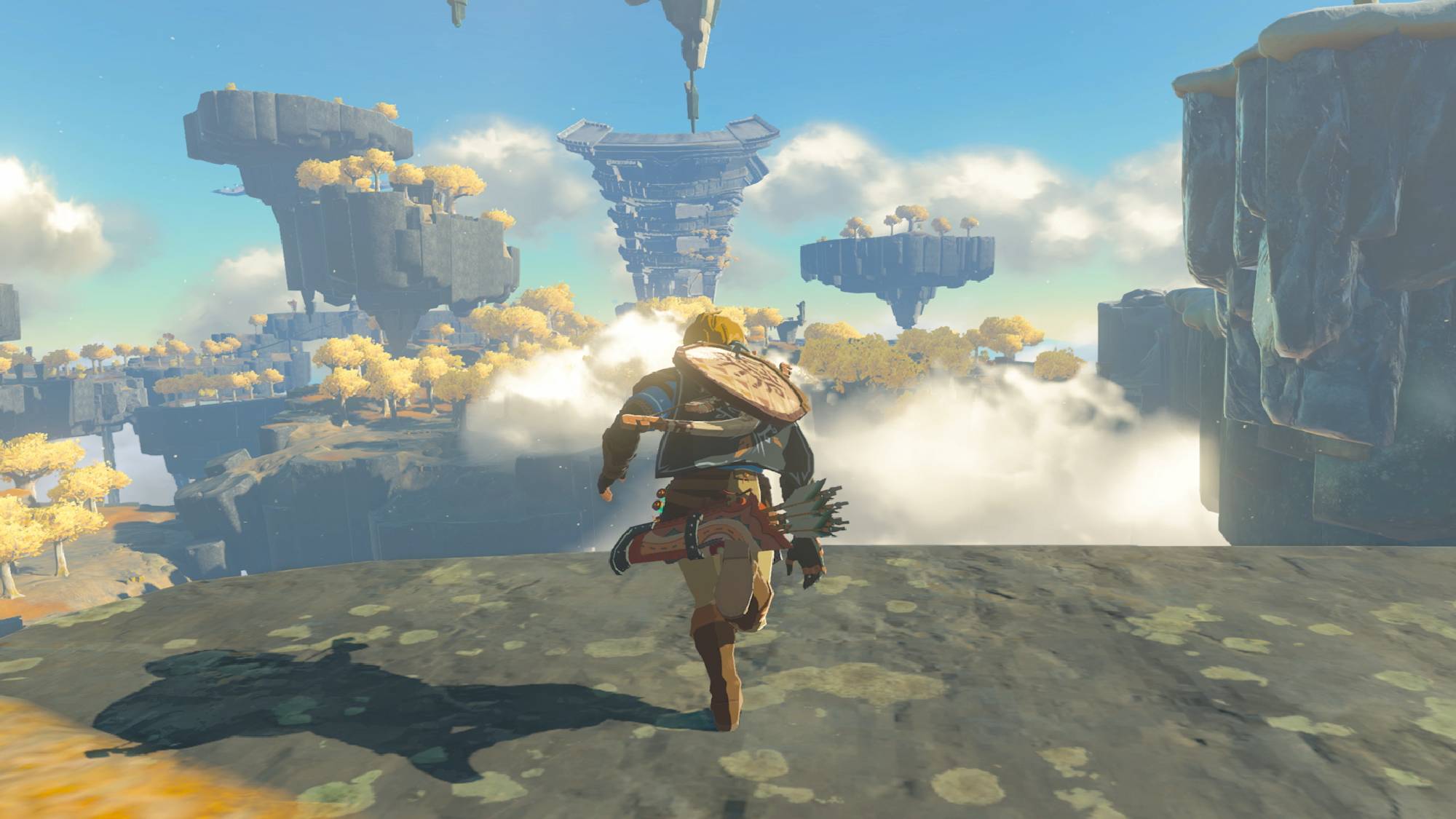
I’ve had my Switch for almost six years now, and there’s never really been a point where I felt the need to ditch Joy-Cons for something a little more refined. The only time I’ve deliberately not used them is because I couldn’t, thanks to an ongoing drift repair. But clearly, there’s been something in the back of my mind that wasn’t happy, and it took Tears of the Kingdom to make me realize it.
It turns out it wasn’t the Joy-Cons that were the real problem, Nintendo’s developers are. But no matter, because switching to an Xbox controller should prove to be a much more pleasant experience based on extra comfort alone. Just as long as I can override my muscle memory and stop tapping the wrong buttons.
More from Tom's Guide
Sign up to get the BEST of Tom's Guide direct to your inbox.
Get instant access to breaking news, the hottest reviews, great deals and helpful tips.

Tom is the Tom's Guide's UK Phones Editor, tackling the latest smartphone news and vocally expressing his opinions about upcoming features or changes. It's long way from his days as editor of Gizmodo UK, when pretty much everything was on the table. He’s usually found trying to squeeze another giant Lego set onto the shelf, draining very large cups of coffee, or complaining about how terrible his Smart TV is.
